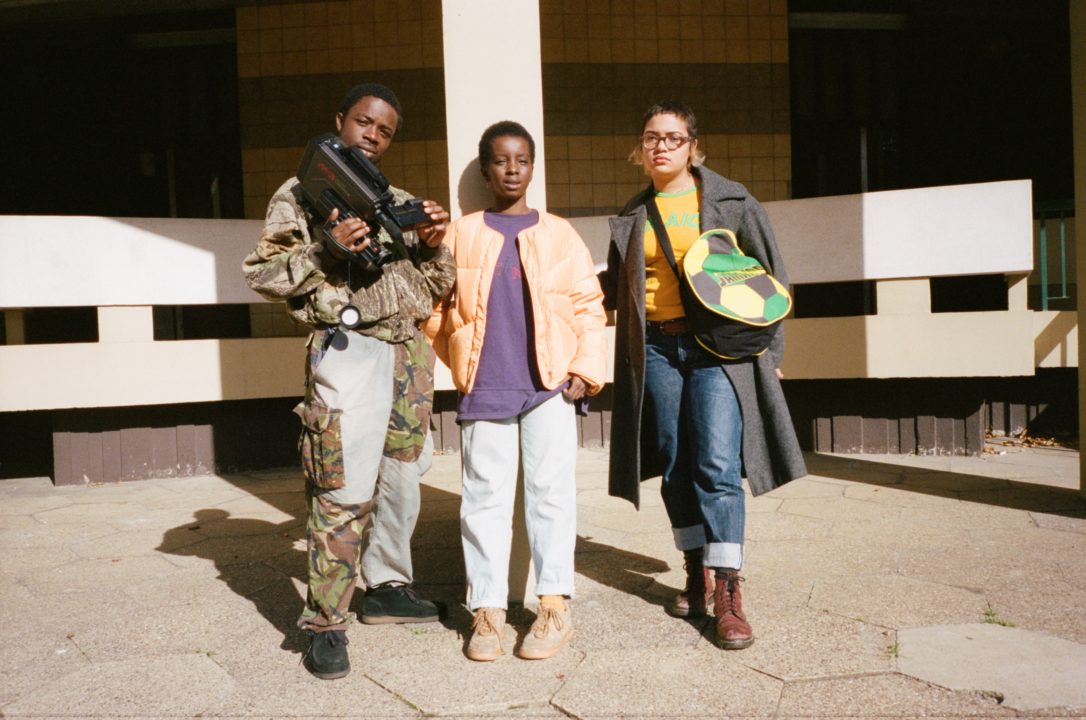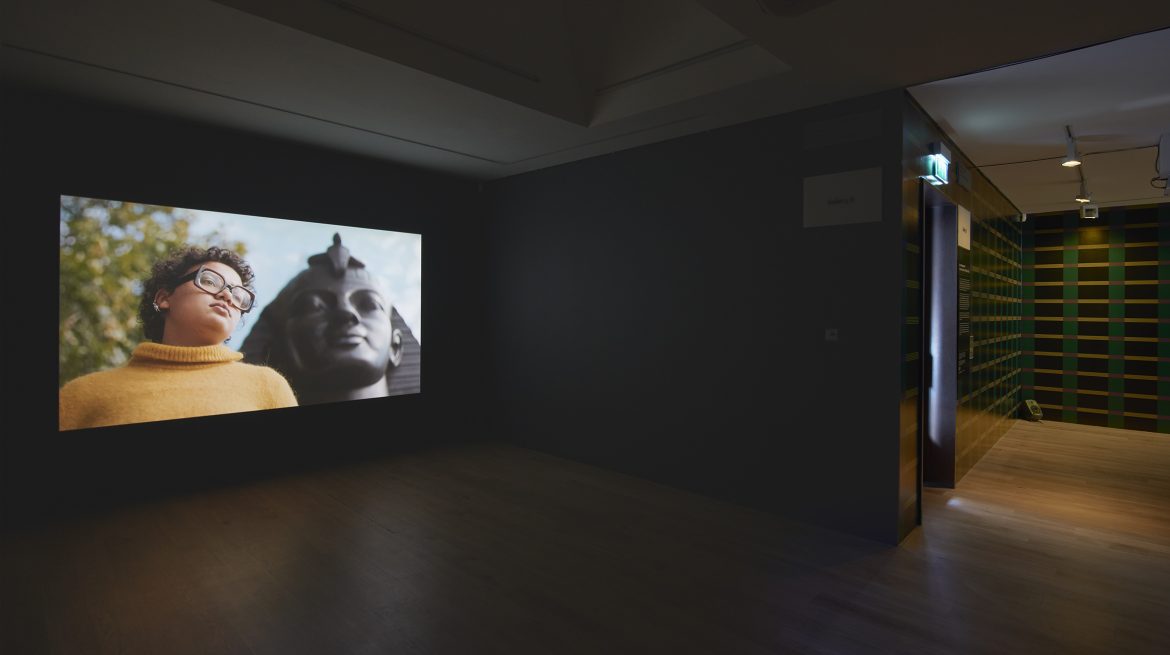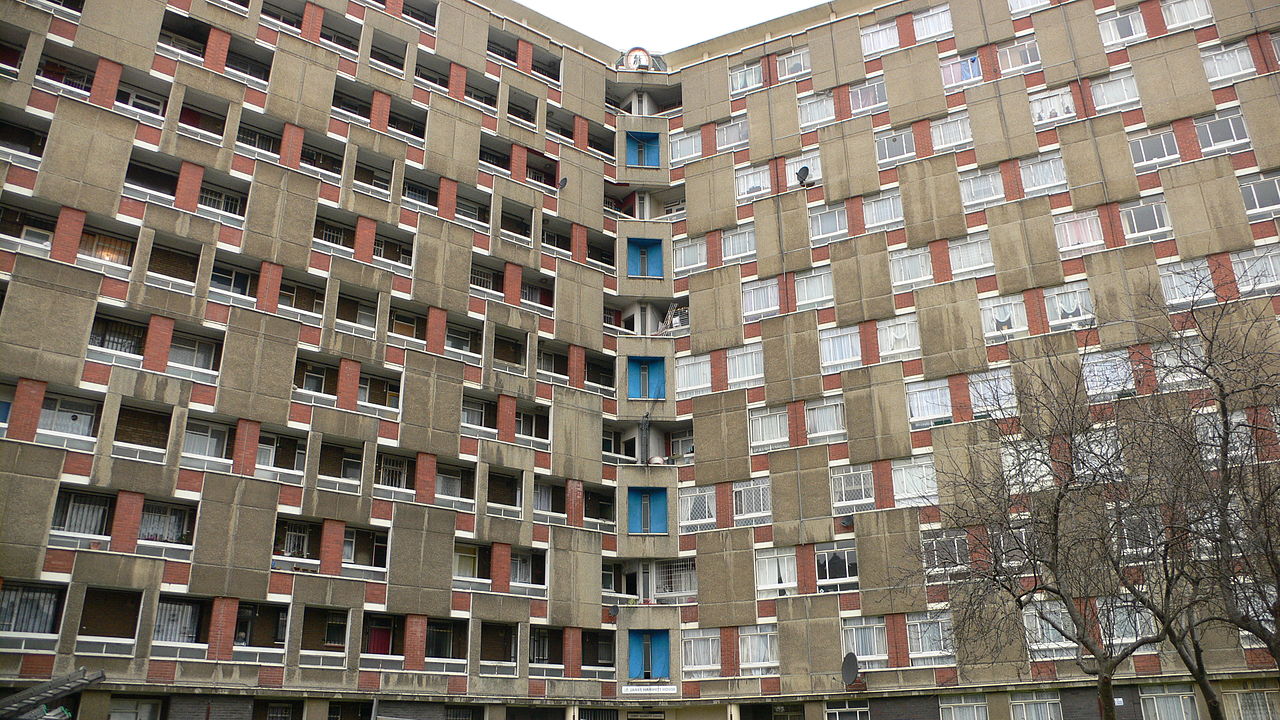A Glittering City
Grimshaw Foundation spoke to filmmaker and artist Ayo Akingbade about her exhibition 'A Glittering City' at Whitechapel Gallery
Ayo Akingbade is a filmmaker based in London, UK. In 2015, she made her first film In Ur Eye, which was shortlisted in David Lammy MP’s Fourwalls short film project – a competition that aims to get people thinking about London’s housing crisis.
In Ur Eye was about rapid gentrification in Dalston in the London borough of Hackney, where the artist grew up, and it premiered at the London short film festival. Since then, the 26-year-old artist has gone on to write, produce and direct 12 short films to international acclaim. This includes the trilogy No News Today, which explores social housing in London and how redevelopment affects local residents.
‘I started to make these works because I felt like there was a lot to say on the matter and film was the perfect vehicle for it,’ Akingbade told Grimshaw Foundation. ‘Council estates, tower blocks, public housing, whatever you like to call it, are often depicted in a certain matter in the media and British cinema, so my aim was to counter this. Everyone has different perspectives and I thought I had something interesting to say.
‘Passion is at the core of all my works and I discovered my voice whilst exploring and questioning my local environment’, she added.
Passion is at the core of all my works and I discovered my voice whilst exploring and questioning my local environment
The first film Tower XYZ revolves around Erno Goldfinger’s Trellick Tower – the block has a rocky history, but has since become protected by a Grade II listing. Gentrification is a process where the character of a poor urban area is changed by wealthier people moving in, and Akingbade’s films ask, what happens to vulnerable communities when this shift happens?
The second in the series Street 66 also explores a community living in social housing built in the 197os, this time Angell Town estate, built in Brixton. Akingbade focuses on former resident Dora Boatemah MBE, who campaigned for the rights of tenants to be involved in decisions about the redevelopment of their homes.

The third in the trilogy is currently showing at Whitechapel Gallery as part of Akingbade’s solo exhibition A Glittering City. ‘Dear Babylon’ a portrait of Dorset Estate in Bethnal Green, which was designed by Berthold Lubetkin. A simple pattern of huge concrete rectangular slabs decorate the exterior of the building, which boasts rooftop vistas, unique spiral staircases and walkways.

Lubetkin, who came to London in 1931, was part of a large community of Jewish émigré artists and architects living and working in interwar Britain. He considered architecture to be a vehicle for the health of local communities and famously said, ‘Nothing is too good for ordinary people.’
Gentrification is a process where the character of a poor urban area is changed by wealthier people moving in, and Akingbade’s films ask, what happens to vulnerable communities when this shift happens?

‘Dear Babylon’ begins with a fictitious housing bill that threatens the future of social housing. Three art students, who want to raise awareness about their neighbourhood, respond by making a film, exploring via interviews the lives of tenants and people who work on the estate.
When Lubetkin first arrived in London, a typical three bed house was just one and a half times the average annual salary; now, what we call ‘affordable’ homes are thirteen times the salaries of people trying to buy their first house.

‘Years ago, I was walking through Hackney Road at night and encountered the George Loveless Estate, and it was such a fascinating site’, Akingbade said. ‘I love how the blue and orange fluorescent tube lights from inside reflect the skyline. When I started to write ‘Dear Babylon’ and conducted research about architecture and social housing in Hackney and Tower Hamlets it felt quite natural to go with Dorset Estate. I discovered Lubetkin designed the block, alongside Francis Skinner and Douglas Bailey.
‘Lubetkin seemed like such an interesting figure with really radical universal ideals such as; all, no matter what class you are in, should have well-designed, decent affordable housing’, she said. ‘Slowly I think these values seem to have evaporated.’
The architects Elsie Owusu and John Allan, who are interviewed in ‘Dear Babylon, would agree with Akingbade. ‘People on lower incomes are being pushed further and further out of the city,’ says Owusu, while Allan reflects, ‘Social investment has to be a continuous process.’